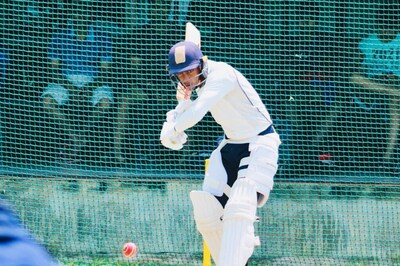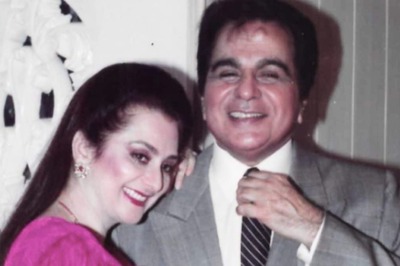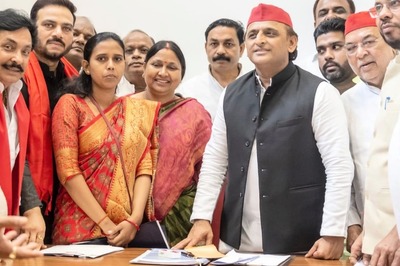
views
Bangladesh’s political landscape shifted dramatically following the resignation and flight of Sheikh Hasina on August 5. As Bangladesh enters this new chapter, tensions have started brewing between the Bangladesh Nationalist Party (BNP) and the Student Anti-Discrimination (SAD) movement.
The BNP, once viewed as a credible ally by many students within the SAD movement like Nahid Islam, Asif Muhammad and Abu Bakar Majumdar, are now facing mounting criticism for its apparent political opportunism. Initially, the BNP positioned itself alongside the SAD protesters, aligning with their demands and seizing what seemed to be a ripe opportunity to re-establish itself as a relevant force in Bangladesh’s post-Hasina political landscape. However, the facade of solidarity did not take long to crumble, revealing deeper, underlying fractures within this fragile alliance.
SAD leaders like Hasnat Abdullah, inherently distrustful of traditional political players, quickly began to question the BNP’s true intentions. To them, the BNP’s actions and rhetoric increasingly pointed towards self-serving motives rather than a genuine commitment to the core principles of democratic reform and anti-discrimination that had mobilised thousands of students and young activists across the country. The SAD movement, fueled by a new generation demanding systemic change and transparency, saw in the BNP the same old brand of politics that has plagued Bangladesh for decades—politics driven by power games, patronage, and personal gain.
Evidences have shown how BNP had attempted to infiltrate SAD’s leadership ranks and steer its narrative towards their own partisan agenda and how it has deepened the sense of betrayal among SAD activists. These actions were seen not only as an attempt to dilute the movement’s core message but also as a blatant ploy to hijack the platform of Bangladesh’s youth for the BNP’s electoral benefit.
Such manoeuvres have not gone unnoticed by the youth leading the SAD movement. Accusations of “political opportunism” now dominate the discourse, and what once might have been a promising partnership has devolved into a bitter confrontation. The SAD activists, who have risked their lives and futures to challenge the deeply entrenched and corrupt political order, now find themselves battling not only the remnants of the Awami League’s authoritarianism but also the duplicity of an opposition party seemingly cut from the same cloth.
The growing divide is emblematic of a larger, more dangerous trend within Bangladesh’s political dynamics. The hijacking of students’ protest by The BNP and Jamaat-e-Islami in the aftermath of Hasina’s resignation, by resorting to violence and vandalism, has been duly condemned by the SAD. These actions have already angered the students, who are flooding the social media with anti-BNP/anti-Jamaat posts under hashtags #nojamaat #nobnp.
For the SAD, the message is clear: they refuse to be pawns in the BNP’s power games. The students and young activists who have driven this movement from its inception have shown that they are not just protesting against one autocratic regime but are also rejecting the broader culture of political opportunism that has long plagued their country. In their view, aligning with the BNP would not be a step forward, but rather a regression into the same political quagmire from which they are desperately trying to emerge. As the BNP continues its calculated manoeuvring, it risks alienating the very section that could have been its greatest asset—the youth. The SAD’s response to these attempts at co-optation has been unequivocal: a rejection of any partnership that does not serve the broader cause of justice and democratic renewal.
With BNP intensifying its pressure on the current interim government to conduct elections within 90 days, it has created a new layer of tension in the already volatile political environment. This interim government, on the other hand, has taken a more cautious approach, prioritising the set of comprehensive reforms before conducting elections. The BNP’s insistence on an expedited electoral process has further deepened the rift. The SAD-backed advisors within the interim government argue that rushing into elections without addressing the deep-rooted issues of corruption, nepotism, and electoral malpractice will only perpetuate the cycle of dysfunctional governance.
The SAD members, representing a generation longing for change, have made it clear that they will not be coerced into abandoning their reform agenda. Their position is that any future elections must be held in a climate where the integrity of the democratic process is guaranteed—something that cannot be achieved without first enacting substantial political and institutional reforms. For them, elections without reform are meaningless, a mere continuation of the broken system they have fought so hard to change.
The ‘Shaheedi March’ procession on 5 September, marking one-month of Sheikh Hasina’s fall, echoed SAD’s reform-centric five-point demands. While law-and-order has not been restored, Islamist parties, which have long advocated for a Sharia-law-based Bangladesh and opposed the secularism enshrined in the country’s constitution, are now increasingly vocal in their demands for a more prominent political role and the lifting of bans on their activities. Their calls for immediate elections coincide with the BNP’s demands, creating a coalition of convenience between the two groups. However, both groups’ desire to return to power through early elections is fundamentally at odds with the SAD’s vision of a reformed and pluralistic Bangladesh.
As the political drama continues to unfold, the stakes could not be higher. The clash between SAD’s reformist agenda and the electoral ambitions of the BNP and Islamist groups will most likely define the future trajectory of Bangladesh. The question now is whether the BNP can move beyond its traditional tactics and genuinely embrace the new political reality shaped by the young voices of Bangladesh. If it fails to do so, the party may find itself, on the wrong side of history—relegated to the margins by a generation that demands not just a change of leadership, but a change of the very system itself.
The writer is an author and columnist and has written several books. His X handle is @ArunAnandLive. Views expressed in the above piece are personal and solely those of the author. They do not necessarily reflect News18’s views.




















Comments
0 comment